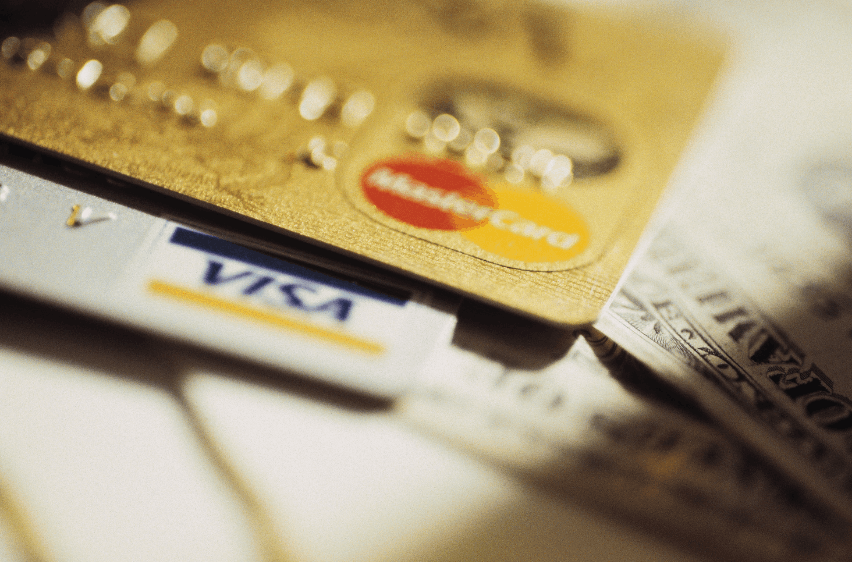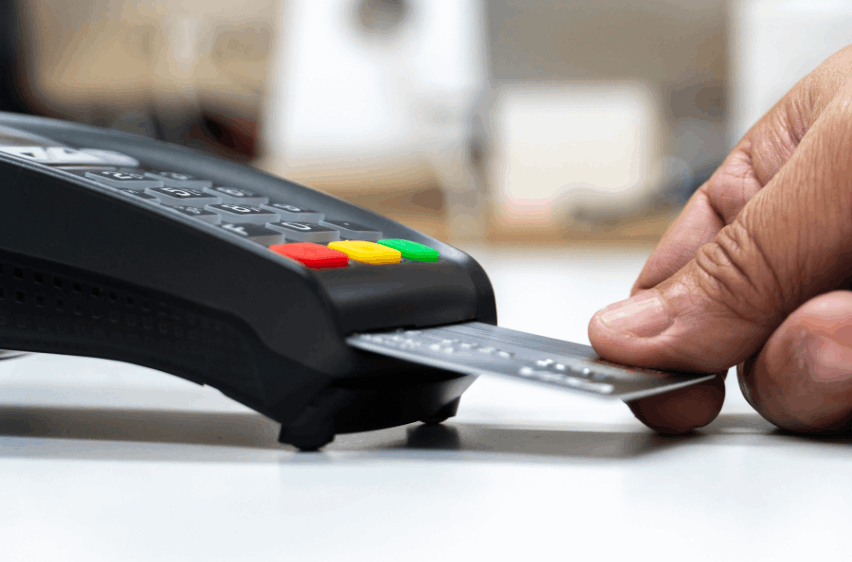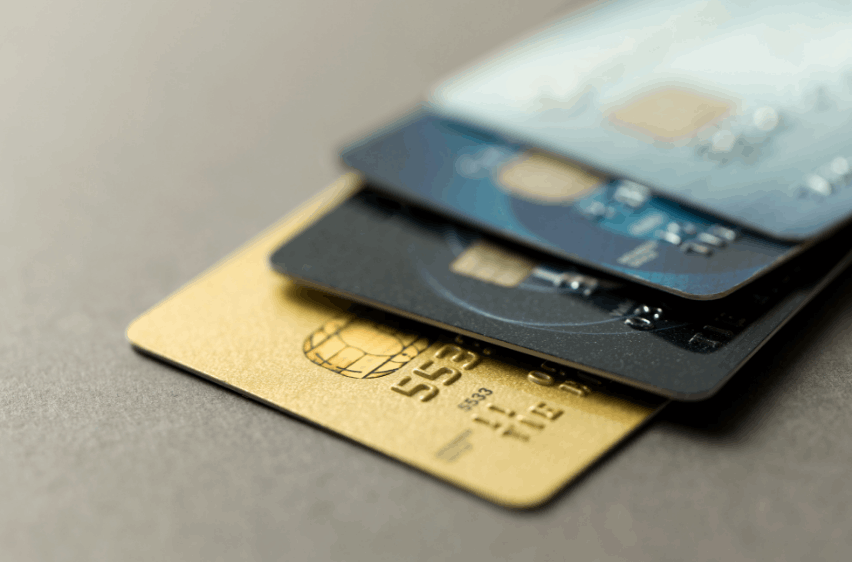Any business owner knows that it can be challenging to keep personal and business expenses separate. After all, people and businesses have their own separate lines of credit and credit rating. Personally, I would get a personal credit card for myself and a business credit card for my business.
Having individual accounts for personal and business purposes can help me keep financial boundaries between myself and my organization. In short, getting these two accounts is just the responsible thing to do for business owners, even for self-employed individuals.
Not everyone is familiar with the specific functions and responsibilities that come with these two types of credit cards. To shed some light on these details, I’m comparing the two kinds of cards in this article. Read on.
- Business Credit Cards Versus Personal Credit Cards
- Use Cases of Both Types of Cards
- How Business and Personal Credit Cards Work
- Advantages of Using Business and Personal Cards
- Some Disadvantages to Look Out For

Business Credit Cards Versus Personal Credit Cards
In trying to explain the differences between business and personal credit cards, I find it important to outline what these two types actually are. Let’s talk about business cards. These are credit cards that cater to organizations of all kinds and sizes.

There are different reasons for businesses to get this card. One of the most common goals is to gain access to funds for projects, purchases, and other similar sources of cash flow. These are usually taken as an alternative to taking loans, especially as its application process is much easier.
I want to emphasize that credit cards, whether personal and business, typically have higher interest rates compared to secured loans because they are unsecured debt. Credit card companies are taking on more risk when issuing these cards compared to lenders when approving a loan application.
To cater to more types of clients, some card issuers offer secured credit cards, which makes them more accessible to businesses without a minimal credit history. Depending on the bank and offer, business credit cards impose different types of fees.
Detailing Personal Credit Cards
Like business credit cards, personal credit cards offer individuals access to funds. These can be used for more, well, personal purposes such as shopping, daily purchases, dining, gas, entertainment, and other similar transactions.
What I love about credit cards is that with proper management, I can take advantage of the promos, rewards, and other opportunities the card issuer provides. If I choose an option that fits my needs and lifestyle, I can save money while I spend, as well as get discounts on all kinds of transactions.
These cards also offer protection in case of fraudulent transactions, traveling, and security. Again, this depends on the features included in the card, as well as the bank which handles the card.
Use Cases of Both Types of Cards
Above, I talked about the fact that businesses and individuals choose to apply for credit cards for different reasons. The thing is there are different use cases for these cards aside from providing access to funds needed to make transactions.

One of the most common uses for businesses is to build a credit reputation. Many businesses, especially small ones, do not have credit histories, and credit ratings are essential when applying for loans and other similar financial assistance. Potential investors usually look at this score when making decisions.
Businesses may also consider applying for a credit card as a way to get additional security and protection for their transactions. As mentioned, many issuers include such features in their offers. For business options, these firms usually include purchase protection and insurances.
While it covers lower amounts, these protections can still cover issues such as fraudulent transactions. Any amount stolen or lost can also be compensated.
How Personal Credit Cards are Used
How I use my personal credit card depends on my needs and lifestyle. I use it to cover my spending needs when I prefer to use contactless modes of payment when grocery shopping, buying gas, and other similar purchases. This requires discipline and tracking to avoid accumulating debt.
The best reason to use a credit card is to pay for bills such as electricity, water, and the internet. This is a way to build my credit rating, which can affect my prospect of getting better terms when applying for a new credit card. There are options out there that offer cards to build credit scores.
I can also use my credit card for debt consolidation, streamlining spends, getting rewards, and getting protection and insurance.
How Business and Personal Credit Cards Work
One thing that makes the two types of cards similar is how they work. Both types are managed by a financial institution, usually, a bank, which is also the issuer. These institutions work with a credit card company like Visa and MasterCard which handles the credit card network.

When I make a transaction for my business or personal needs, I just need to tap or swipe my card in a compatible point-of-sales station. This will start the payment process. The merchant’s bank will receive my card details, which it needs to verify before allowing the transaction to push through.
To do this, it taps into my credit card company’s network, which will provide authorization to the bank. In the meantime, my issuer will authenticate my information and provide approval for the transaction. It can also be denied given certain circumstances.
This may seem complicated but it takes seconds to minutes to complete the transaction. Then, I will receive a statement at the end of the billing cycle notifying me of my balance. I can choose to pay my balance at the minimum payment or all at once. I just need to do it before the due dates.
Terms and Conditions
Different requirements are called for when applying for business or personal credit cards. One thing that always matters is credit and financial background as it can dictate the terms I will get. Issuers also consider income and expenses.
Depending on the factors issuers consider, I can get high or low credit limits and annual percentage rates. The stronger my financial background is, the better my chances are of getting favorable limits and rates.
Advantages of Using Business and Personal Cards
When it comes to using credit cards, I always expect advantages, as long as I take my time to look at what each option has to offer. For businesses, there are several sources of benefits including perks, discounts, rewards, and features.

One of the most appealing ones includes business-related rewards. Many issuers have cashback or rewards points programs every time I purchase office supplies, computer hardware and software, phone and internet services, and other similar spends.
For owners that need to travel for work, there are cards that provide travel-related perks such as baggage, travel, and car rental insurance, access to an airport lounge, purchase protections, return protections, extended warranties, access to events, and experiences, and ticket discounts.
Businesses that require giving employees access to funds can request employee cards. These can be issued under the staff’s name and can be used for all work-related spending.
What Personal Credit Cards Offer
The thing about personal credit cards is they offer pretty much the same benefits, but on a more individual scale. Reward points, cash backs, travel perks, and coverage are all available for personal cardholders. I could also apply for a supplementary card.
With such a card, I can take advantage of one-time bonuses, exclusive offers, and other similar perks.
Some Disadvantages to Look Out For
Like all the good things in this world, it is important to remember that credit cards also have disadvantages. For businesses, this will be higher interest rates compared to loans. This may be a tolerable consequence in exchange for easier and more convenient access to additional funds.

Another con to remember is that many issuers may require personal guarantees, especially for businesses that have low creditworthiness or minimal credit histories.
Failure to make repayments on time or any delinquencies will be reported to credit scoring companies and will reflect on the holder’s personal rating.
Lastly, an important disadvantage posed by business credit cards is there are few consumer protection laws covering them. For example, personal cards are protected from interest rate hikes, but this does not apply to business cards.
What Personal Credit Cards Entail
The key to maintaining a personal credit card is consistent repayments. This means that I need to pay for any outstanding balance on time and without fail. Failure to do so can result in my credit score taking a hit. I could also accumulate more debt than I can handle.
Moreover, I need to be smart about interest rates. I can definitely spend using my card, but if I do not want to pay interest, then I should pay all of my dues before the due date.
Conclusion
Business and personal credit cards may work similarly, but they have essential differences in the requirements needed to be approved, as well as the particular advantages and disadvantages they pose. Nevertheless, every business owner should consider getting both for better financial management.
Disclaimer: There are risks involved when applying for and using credit products. Ensure you consult the bank’s terms and conditions page before agreeing to anything.
